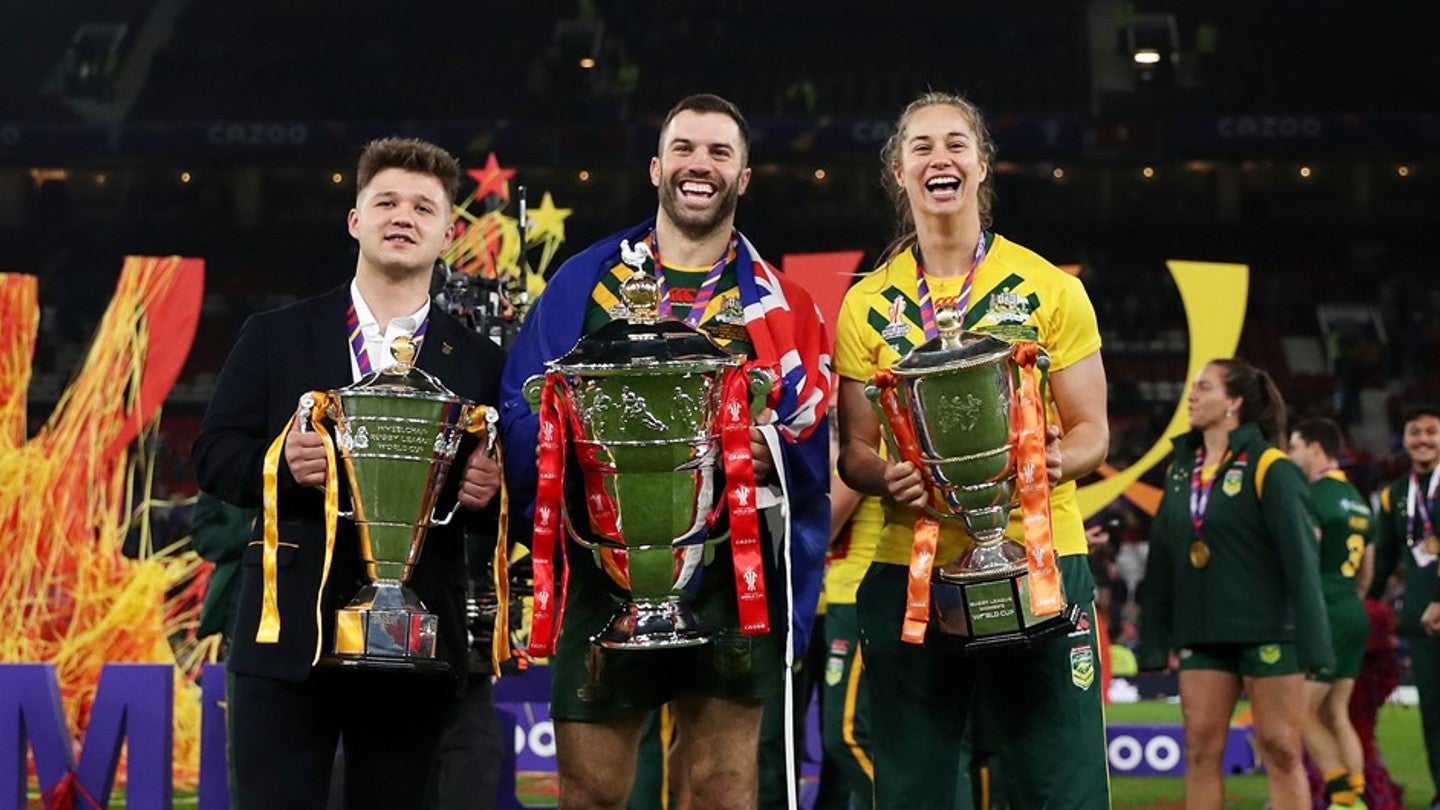
The International Rugby League (IRL) governing body has announced the next Rugby League World Cup (RLWC) will be staged in the southern hemisphere in 2026 after France withdrew from hosting the event for financial reasons.
The men’s, women’s, wheelchair, and youth World Cups were all due to be held simultaneously in France in 2025 but the organizing committee of the event announced it would no longer host the national teams competition over its economic viability in May.
The French government had demanded organizers secure extra funding to ensure the tournament would not have made huge losses. However, despite being given extra time, they were unable to do so, leading to the country’s withdrawal.
The IRC said a precise decision on the hosting rights for the 2026 edition will be announced at a later date, but the tournament will feature a reduced field of 10 men’s teams (from a previous 16), as well as eight-team women’s and wheelchair World Cups.
IRL chairman Troy Grant said so far, the organization had received two separate bids from southern hemisphere nations, widely presumed to be from Australia and New Zealand, to host the tournament which will be backed by government guarantees.
He added: “We will have an expedited bid process and the host will be identified before the year’s end, once the board has completed its due diligence of those bids.”
How well do you really know your competitors?
Access the most comprehensive Company Profiles on the market, powered by GlobalData. Save hours of research. Gain competitive edge.

Thank you!
Your download email will arrive shortly
Not ready to buy yet? Download a free sample
We are confident about the unique quality of our Company Profiles. However, we want you to make the most beneficial decision for your business, so we offer a free sample that you can download by submitting the below form
By GlobalDataIn the immediate aftermath of France’s withdrawal, New Zealand Rugby League chief executive Greg Peters confirmed the nation’s interest in co-hosting the event, having previously done so for the 2017 edition alongside Australia.
Australia’s NRL chief executive Andrew Abdo, meanwhile, would not comment on Australia’s bidding plans but confirmed the Australian Rugby League Commission had anticipated French organizers would run into issues.
The successful bid will be the third to be awarded hosting rights for the initial 2024 edition.
France was awarded the tournament in January 2022, which was delayed to October and November 2025, after the original co-hosts, the US and Canada, withdrew in 2018, ending the IRL’s plans to take the tournament out of Europe and Oceania for the first time.
The last Rugby League World Cup, hosted by England, was postponed to 2022 after Australia and New Zealand withdrew from playing it in 2021 due to the ongoing pandemic.
The latest shift of the tournament from 2025 to 2026 comes as part of a revised calendar that will see the following men's edition held in 2030 and the women's and wheelchair World Cups staged separately.
Women’s World Cups will be staged as standalone tournaments from 2028 in recognition of the game’s “phenomenal rate” of growth, while a decision will be taken on when best to schedule the Wheelchair World Cup after 2026.
Grant said: “The IRL board has made these decisions to create more compelling content and secure the financial future of the international game.
“The cancellation of France 2025 has given us an opportunity to refresh the structure of the World Cup and associated tournament as part of a long-term international calendar that all in the game have been desperately seeking.”
The new calendar will also see the return of the Ashes, with England’s men’s and women’s teams traveling to Australia in 2025. New Zealand and Australia will also play in England in 2027 and 2028 as part of the IRL’s plans to place greater emphasis on regional championships.
The IRL is also planning a World Series format, with Grant adding: “It’s no secret that the Achilles heel for international rugby league for far too long has been the absence of an international calendar.
“The ad hoc nature of tournaments and international matches, and absence of any clarity for nations, players, and fans to plan their seasons, is over.”







